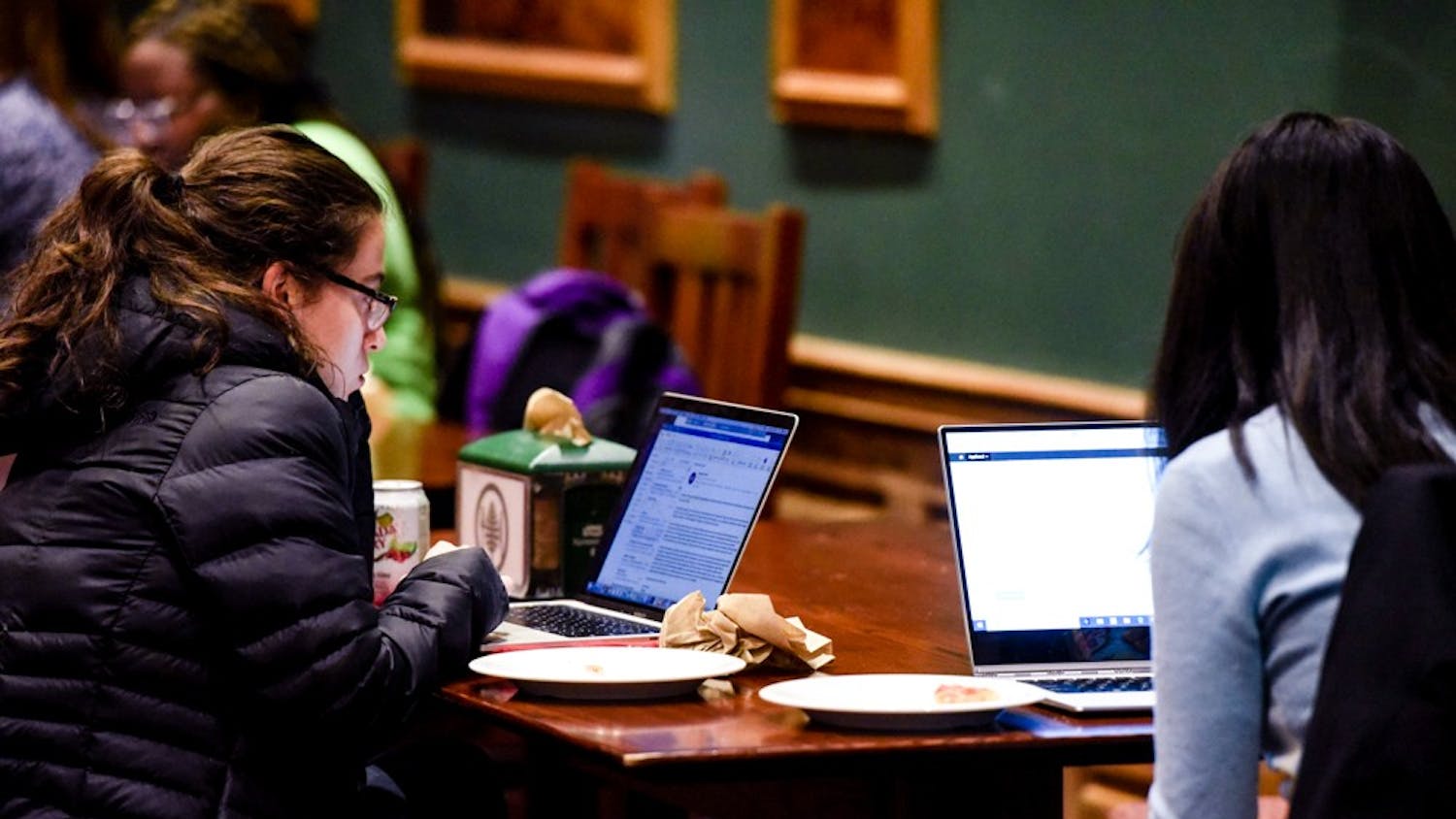After two or three years, Hanover can begin to feel small. No matter how honed your pong skills might be, we all crave a break eventually. To many, the idea of a Dartmouth foreign study program — the wildly different experience of going to school in another corner of the globe — is certainly attractive.
An FSP offers the chance to drop the label of ‘Dartmouth student’ and meld into the culture of another school. It’s a way to experience a different culture and society.
However, some Dartmouth programs do not live up to the immersion experience they advertise. In my experience, the history department’s London FSP — which advertises “London’s abundant resources in British, European, American or world history” as “the centerpiece of the program” — would have benefited from a revised curriculum.
At the end of my sophomore summer, with blisters from the Mink Brook rope swing still raw, eyes bleary from a few hours too many spent under the fluorescent lighting of 3FB, I looked forward to three months in the energetic and culturally eclectic city of London with anticipation.
I was particularly excited to research and study a subject of my own choosing, since the London program’s primary academic attraction is its independent-study project. Participants in the program come up with a topic, do some initial research beforehand and then hit the ground running when the term begins. In theory, students can choose to study something they’re passionate about and, with an entire term to spend in London’s resource-rich libraries and museums, they’ll have no problem producing a well-researched and interesting final paper. My peers’ topics ranged from Royal Dutch Shell’s dealings in the Middle East to the history of LSD culture in Britain. I opted for the socioeconomic history of lawn tennis, and I was geeked up about it.
In theory, the project should have been the scholastic centerpiece of the term; difficult, but ultimately rewarding. In practice, it took a back seat to the demands of two other courses, one which was clearly added to “immerse” us in another culture. The curriculum includes three classes: the independent study; a history of London taught by a UK-based professor hired by Dartmouth; and a course of one’s choosing at University College London. The class about London made perfect sense; it gave us a deeper understanding of the city than could be gathered from just wandering around. The UCL course, on the other hand, felt like a poorly thought-out attempt to integrate us into a new social sphere — the length of the FSP means that Dartmouth students are only around for half of the course. Combined, both courses left me with little time to pursue my independent study.
The tacit goal of the UCL course — at least as I saw it — was to give us the chance to explore a community different from Dartmouth, and to expose us to a wider body of students. But I was unable to befriend a single Brit. And before you go thinking I’m incapable of making friends — which you are definitely thinking — let me tell you that UCL is largely a commuter campus, so very few students live in on-campus housing. The Dartmouth students were cloistered in our own apartments near campus, which were lovely, but my neighbor was a middle-aged woman who enjoyed jigsaw puzzles and casting disapproving looks at me in the elevator. Given that none of the other students on my program became friends with any Brits, I’d say the experiment failed.
But if the goal was to load us up with superfluous work and leave us with no time for our independent study projects, the College succeeded spectacularly. My peers and I found ourselves swamped in work trying to put together papers that represented our only opportunity to earn a good grade in our UCL course. It wasn’t exactly conducive to intensive academic research on our independent projects.
Ultimately, I felt let down by the amount of time I did get to put into my independent project. I would have been served far better by an on-campus dorm and a pass/fail grade in a UCL course, both of which would have enabled me to immerse myself in London’s vibrant culture and dive into my independent research with the vigor I craved. As it was, my experience was spread too thin, and it meant that I didn’t get to appreciate any of the elements of the program that I had been loking forward to. Foreign study programs can be an incredible opportunity to pursue new interests, but only if they really give us the chance to do so.
William Owen is a member of the Class of 2021.
The Dartmouth welcomes guest columns. We request that guest columns be the original work of the submitter. Submissions may be sent to both opinion@thedartmouth.com and editor@thedartmouth.com. Submissions will receive a response within three business days.


